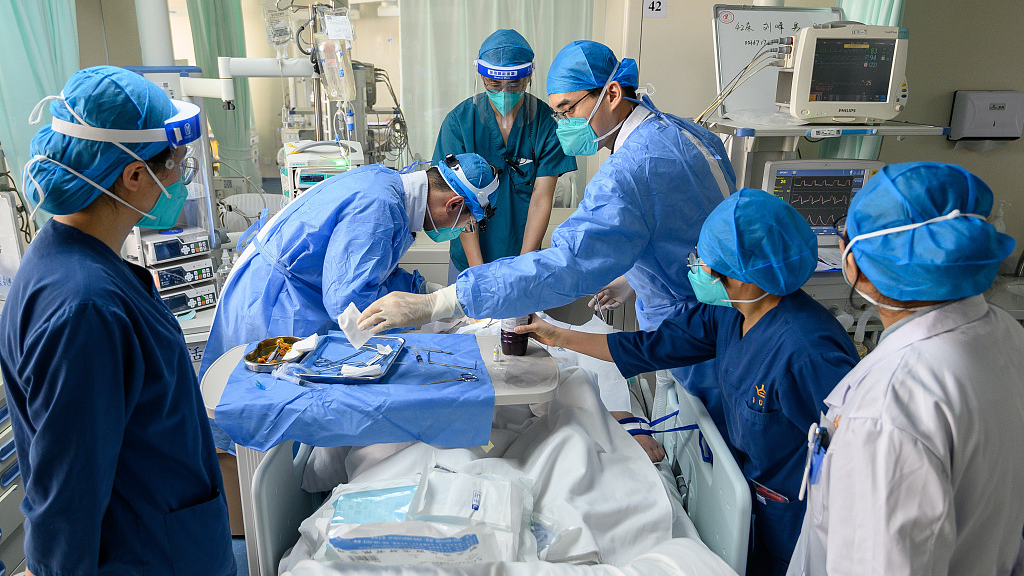
Medical workers treat a critically COVID-19 patient in Shanxi Bethune Hospital in Taiyuan City, North China's Shanxi Province, January 9, 2023. /CFP
Medical workers treat a critically COVID-19 patient in Shanxi Bethune Hospital in Taiyuan City, North China's Shanxi Province, January 9, 2023. /CFP
China released the fourth version of the diagnosis and treatment protocol for treating severe cases of COVID-19 patients on Friday, to further guide local governments to improve the cure rate and reduce the death rate of the group, according to the National Health Commission (NHC).
A patient, whether or not meeting the critically ill threshold, will be designated as critical if he or she is aged above 65, not fully vaccinated, and has severe underlying conditions, said the new guideline.
The name of the disease has also been changed from novel coronavirus pneumonia to novel coronavirus infection.
The new guidebook also said upgraded care for critically ill patients, requiring their health indicators to be monitored, especially the oxygen saturation of fingers during rest and after exercise.
Low oxygen saturation can raise the alert that a patient is critical, the guidebook read, noting that attention should be paid to saturation lower than 94 percent after light exercise to avoid the aggravation of the patient's situation.
The guidebook also specified better ways to carry out oxygen treatment and provided more instructions on the use of traditional Chinese medicine in clinical practice.
In addition, the new guidebook included some effective clinical methods, adding treatment for fever and coughs in the anti-symptom therapy, China-approved small molecule medicines in anti-viral therapy and anticoagulant therapy, meaning critical patients should be given heparin if there are no contraindications, according to NHC.